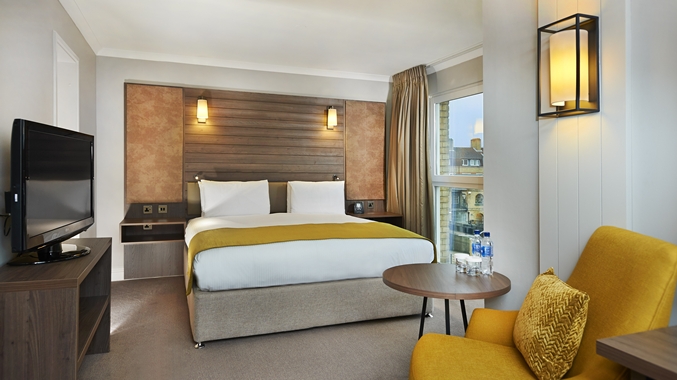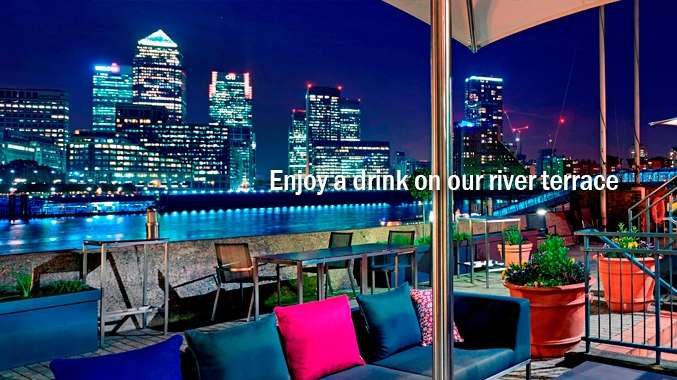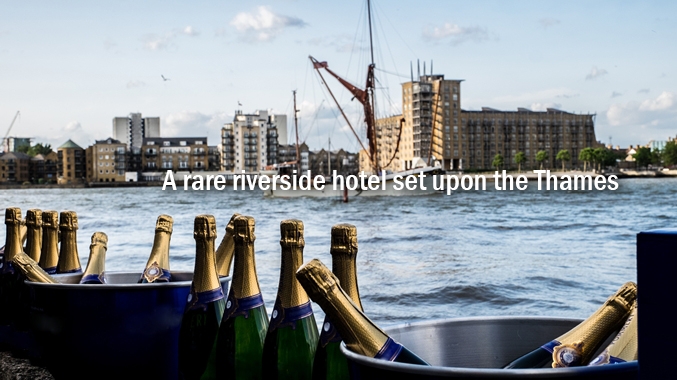Venue & Hospitality
Hotel Venue:
Holiday Inn London - Brentford Lock
Commerce Rd, London TW8 8GA
London,
UK
Conference Dates: June 19-21, 2017
Hotel Services & Amenities
- Audio/Visual Equipment Rental.
- Business Center.
- Business Phone Service.
- Complimentary Printing Service.
- Express Mail.
- Fax.
- Meeting Rooms.
- Office Rental.
- Photo Copying Service.
- Secretarial Service.
- Telex.
- Typewriter.
- Video Conference.
- Video Messaging.
- Video Phone.
- ATM.
- Baggage Storage.



Transportation
Driving Directions to
27 min (6.4 miles)
via Bath Rd/A4 and Great West Rd/A4
Best route, despite the usual traffic
Heathrow Airport
Longford, Hounslow TW6, UK
Continue to Bath Rd/A4. Take the exit for A4 from M4
54 s (0.1 mi)
Follow A4 to Syon Ln/B464
16 min (5.5 mi)
Follow Syon Ln and London Rd/A315 to Commerce Rd
3 min (0.8 mi)
Holiday Inn London - Brentford Lock
Commerce Rd, London TW8 8GA, UK
Route Map
About City
London is the capital and most populous city of England and the United Kingdom. Standing on the River Thames in the south east of Great Britain, London has been a major settlement for two millennia. It was founded by the Romans, who named it Londinium. London's ancient core, the City of London, largely retains its 1.12-square-mile (2.9 km2) medieval boundaries and in 2011 had a resident population of 7,375, making it the smallest city in England. Since at least the 19th century, the term London has also referred to the metropolis developed around this core. The bulk of this conurbation forms Greater London, a region of England governed by the Mayor of London and the London Assembly. The conurbation also covers two English counties: the small district of the City of London and the county of Greater London. The latter constitutes the vast majority of London, though historically it was split between Middlesex (a now abolished county), Essex, Surrey, Kent and Hertfordshire.
London is a leading global city, with strengths in the arts, commerce, education, entertainment, fashion, finance, healthcare, media, professional services, research and development, tourism, and transport all contributing to its prominence. It is one of the world's leading financial centres and has the fifth-or sixth-largest metropolitan area GDP in the world depending on measurement. London is a world cultural capital. It is the world's most-visited city as measured by international arrivals and has the world's largest city airport system measured by passenger traffic. London is the world's leading investment destination, hosting more international retailers and ultra-high net-worth individuals than any other city. London's 43 universities form the largest concentration of higher education institutes in Europe, and a 2014 report placed it first in the world university rankings. According to the report London also ranks first in the world in software, multimedia development and design, and shares first position in technology readiness. In 2012, London became the first city to host the modern Summer Olympic Games three times.
London has a diverse range of peoples and cultures, and more than 300 languages are spoken within Greater London. The Office for National Statistics estimated its mid-2014 population to be 8,538,689, the largest of any municipality in the European Union, and accounting for 12.5 percent of the UK population. London's urban area is the second most populous in the EU, after Paris, with 9,787,426 inhabitants according to the 2011 census. The city's metropolitan area is one of the most populous in Europe with 13,879,757 inhabitants, while the Greater London Authority states the population of the city-region (covering a large part of the south east) as 22.7 million. London was the world's most populous city from around 1831 to 1925.
London contains four World Heritage Sites: the Tower of London; Kew Gardens; the site comprising the Palace of Westminster, Westminster Abbey, and St Margaret's Church; and the historic settlement of Greenwich (in which the Royal Observatory, Greenwich marks the Prime Meridian, 0° longitude, and GMT). Other famous landmarks include Buckingham Palace, the London Eye, Piccadilly Circus, St Paul's Cathedral, Tower Bridge, Trafalgar Square, and The Shard. London is home to numerous museums, galleries, libraries, sporting events and other cultural institutions, including the British Museum, National Gallery, Tate Modern, British Library and 40 West End theatres. The London Underground is the oldest underground railway network in the world.
